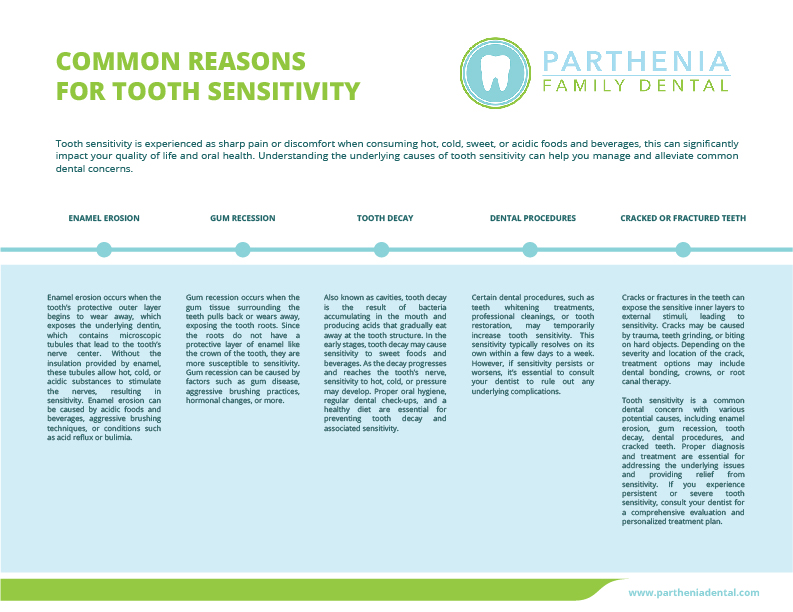
Enamel Erosion
Enamel erosion occurs when the tooth’s protective outer layer begins to wear away, which exposes the underlying dentin, which contains microscopic tubules that lead to the tooth’s nerve center. Without the insulation provided by enamel, these tubules allow hot, cold, or acidic substances to stimulate the nerves, resulting in sensitivity. Enamel erosion can be caused by acidic foods and beverages, aggressive brushing techniques, or conditions such as acid reflux or bulimia.
Gum Recession
Gum recession occurs when the gum tissue surrounding the teeth pulls back or wears away, exposing the tooth roots. Since the roots do not have a protective layer of enamel like the crown of the tooth, they are more susceptible to sensitivity. Gum recession can be caused by factors such as gum disease, aggressive brushing practices, hormonal changes, or more.
Tooth Decay
Also known as cavities, tooth decay is the result of bacteria accumulating in the mouth and producing acids that gradually eat away at the tooth structure. In the early stages, tooth decay may cause sensitivity to sweet foods and beverages. As the decay progresses and reaches the tooth’s nerve, sensitivity to hot, cold, or pressure may develop. Proper oral hygiene, regular dental check-ups, and a healthy diet are essential for preventing tooth decay and associated sensitivity.
Dental Procedures
Certain dental procedures, such as teeth whitening treatments, professional cleanings, or tooth restoration, may temporarily increase tooth sensitivity. This sensitivity typically resolves on its own within a few days to a week. However, if sensitivity persists or worsens, it’s essential to consult your dentist to rule out any underlying complications.
Cracked or Fractured Teeth
Cracks or fractures in the teeth can expose the sensitive inner layers to external stimuli, leading to sensitivity. Cracks may be caused by trauma, teeth grinding, or biting on hard objects. Depending on the severity and location of the crack, treatment options may include dental bonding, crowns, or root canal therapy.
Tooth sensitivity is a common dental concern with various potential causes, including enamel erosion, gum recession, tooth decay, dental procedures, and cracked teeth. Proper diagnosis and treatment are essential for addressing the underlying issues and providing relief from sensitivity. If you experience persistent or severe tooth sensitivity, consult your dentist for a comprehensive evaluation and personalized treatment plan.






